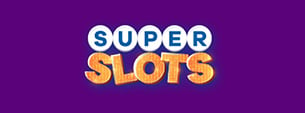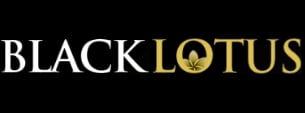#2

Get 600% Welcome Match + 60 Free Spins on Top
Deposit and play with cryptocurrencies to collect rewards
Experience an amazing selection of weekly bonuses and promotions
Enjoy amazing perks in their exclusive VIP program
While opportunities to gamble can be found in Nebraska, it would be a stretch to call this a pro-gaming state. Expansion of the gaming industry here has been slow and met with opposition at every step; that has led to a current situation in which there are a handful of small Native American casinos, but no commercial counterparts.
Given the struggles seen to even get land-based resorts up and running, it should come as little surprise that the Cornhusker State isn’t exactly a hotbed for talk about online gambling regulation. There has been little talk on the subject leaving Nebraskans who wish to gamble online to play at overseas casino sites instead.

For much of Nebraska’s history, all gambling was outlawed in the state. That changed in 1934, when the state’s Constitution was amended to allow for parimutuel wagering on horse races, as it happened in Texas. This would be the first of several moves designed to slowly give locals more options for gambling. Today, horse racing tracks allow not only betting on their own races, but also simulcasting of races from other locations across the country and around the world.
Over time, more options emerged, but they were always strictly limited. In 1958, a provision was introduced to allow for bingo games, provided they were hosted by nonprofit groups. In 1967, that idea was expanded upon: now, raffles, lotteries, and other similar contests could be held by charities.
Perhaps the largest expansion came in 1992, when voters had the opportunity to approve a constitutional amendment to allow for a state lottery. An overwhelming 63% of voters came out in favor of the proposal, and by the next year, the first scratch cards were being sold. Today, the Nebraska Lottery sells tickets ranging from $1 to $20, holds its own drawings, and participates in multistate contests like Powerball and Mega Millions.
Another pivotal moment in Nebraska’s gambling history came in 1988. That’s when the Indian Gaming Regulatory Act came into effect, allowing Native American tribes across America the opportunity to offer casino gaming on their reservations. However, there was a catch: while the tribal groups could offer any type of gaming that was available in their state, they would need to sign compacts with the state government in order to offer anything beyond that.
In Nebraska, that meant that tribes could offer the same kind of limited games that were offered to charities: bingo was fine, as were pull-tab games. Eventually, this expanded into allowing electronic versions of pull-tabs, which were distinguished from true slot machines by the fact that these games determined a winner immediately on purchase (much like buying a physical tab), and any slot-like graphics were just for show.
These machines were not allowed without a fight, however. While the games were offered for some time, the federal government attempted to stop the Santee Sioux Tribe from using them starting in 1995, until the Supreme Court finally refused to hear an appeal from the feds in 2004, ending the legal dispute. That ended a long battle that first saw the tribe switch from standard slots to what they assumed were unquestionable legal machines.
Today, there are four Native American casinos in Nebraska, operated by three tribes (the Winnebago Tribe owns two of the venues). At times, lawmakers have brought up the idea of allowing commercial casinos as well, though these efforts have always failed. The closest effort came in 2004, when voters were presented with two different proposals: one from the state legislature, and another backed by Las Vegas gaming interests. The Las Vegas-backed plan failed with 47% of the vote, while only 36% favored the legislative idea. To this day, many supporters believe that if only one of those questions had been on the ballot that year, Nebraska would today have casino gaming.
#1 Casino

Banking Methods
Operating Systems
Rating
More than $250,000 in monthly player cashouts
Award winner: recipient of numerous "best casino" awards
All games are regularly independently tested for fairness
#2

Get 600% Welcome Match + 60 Free Spins on Top
Deposit and play with cryptocurrencies to collect rewards
Experience an amazing selection of weekly bonuses and promotions
Enjoy amazing perks in their exclusive VIP program
#3

Get $5000 Welcome Bonus Package
Play regularly and get monthly free chips
Learn how to play with the casino guides
Enjoy a wide selection of new games
#4

Get a Welcome Bonus up to $6000 + 100 Free Spins
Claim a great three-part welcome bonus
Compete in tournaments for cash prizes
Make the most of 24/7 live chat and FAQ page
#5

Sign up and get a Match Bonus up to 111% + $111 Free Chip
Play at a gaming world set in 2121
Complete missions to earn rewards
Claim special character promotions
#6

Get 200% Match Bonus up to $7,000 + 30 Spins on Big Game
Download special software to play on desktop with Mac or PC
200% first deposit match worth up to $500 plus seasonal promotions
Over a dozen video poker games plus keno and scratch games
The Cornhusker State isn’t exactly clamoring for Internet gambling, and it is unlikely to come here anytime soon. The only entities that could feasibly offer such games right now would be the Native American tribes, or perhaps the state lottery, and neither has suggested that such a move would be a positive development.
But despite the chilly reception, online casinos are still available to Nebraskans who want to try slots, online casino table games, and other favorites over the Internet. For overseas operators, this state (along with most of the USA) is a grey market: while there is no regulatory framework, enforcement is spotty, so many reputable companies offer games here. From the perspective of players, the situation is even better: with no laws criminalizing participating at an online gambling site, they can safely bet real money on these games without any risk of repercussions, especially when playing with one of the many reputable, trusted operators available to them.
While Nebraska’s voters have regularly stopped any efforts to bring full-scale casino resorts within their borders, that isn’t likely to stop proponents from bringing the issue up again (and again). After all, they only need to succeed once in order to finally break through and make major resorts a reality.
The most recent effort came in 2014, when some lawmakers once again pointed out that residents were spending a lot of money at venues in neighboring states. The argument was that allowing casinos to be built here would not so much increase gaming, but allow money that was already being spent to at least stay with local governments, benefiting the community. Those efforts produced little movement, though, and it is unclear that further attempts would be any more successful in the near future.
In 2015, a more limited proposal was brought forward: one that would allow the creation of “racinos” at existing race tracks in the state, on the example of Delaware. That initiative could potentially appear on ballots in 2016, provided enough signatures can be gathered from across the state.
Meanwhile, online gambling has largely been ignored in this conversation, and will likely be put on the backburner even by pro-gaming advocates for the foreseeable future. With little legislative support and a populace suspicious of any expansion efforts, it will be a long time before regulated Internet betting becomes a realistic possibility here.